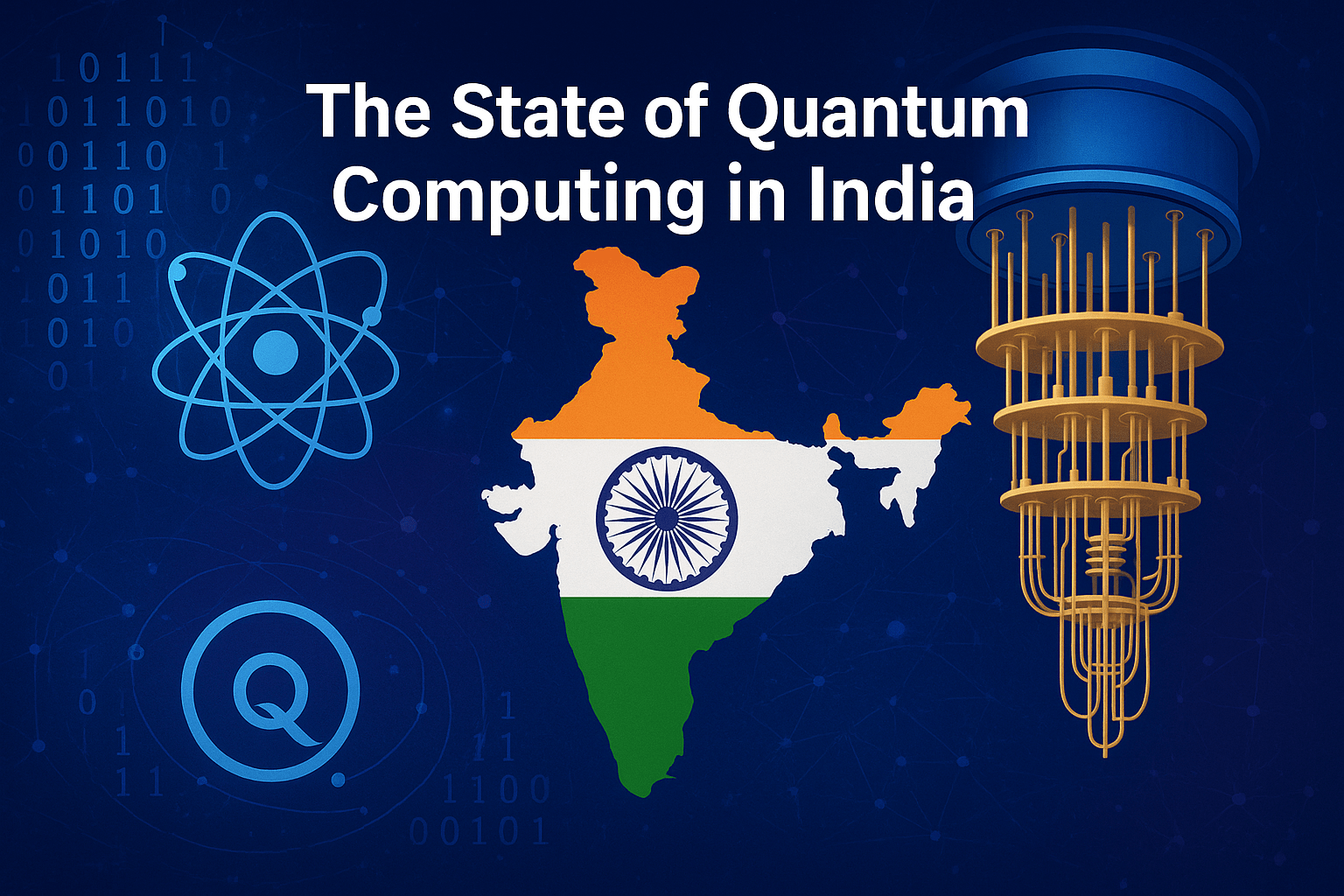Quantum Computing in India is emerging as a transformative force in the nation’s technological landscape. With its potential to revolutionize industries through advanced problem-solving and data processing capabilities, this cutting-edge technology is gaining strong momentum. India is actively investing in quantum research, education, and infrastructure to establish itself as a global leader in the field. This article explores the current state of Quantum Computing in India, highlighting key research initiatives, major institutions, government policies, industry involvement, challenges, and the promising future that lies ahead.
What is Quantum Computing

Quantum computing is a cutting-edge field of technology that leverages the principles of quantum mechanics to process information in fundamentally different ways compared to classical computers. While classical computers use bits as the smallest unit of data, which can be either 0 or 1, quantum computers use quantum bits or qubits. Qubits can exist in a state of 0, 1, or both simultaneously (a phenomenon called superposition).
Here are some key concepts that make quantum computing unique:
- Superposition: Unlike classical bits, qubits can represent multiple states at once. This allows quantum computers to perform many calculations simultaneously.
- Entanglement: Qubits can become entangled, meaning the state of one qubit is directly related to the state of another, no matter how far apart they are. This property enables highly coordinated and efficient computations.
- Quantum Interference: Quantum computers use interference to amplify correct solutions and cancel out incorrect ones during computations.
Why is Quantum Computing Important?
Quantum computing has the potential to solve problems that are currently intractable for classical computers, such as:
- Cryptography: Breaking traditional encryption methods or creating unbreakable quantum encryption.
- Optimization: Solving complex optimization problems in logistics, finance, and supply chain management.
- Drug Discovery: Simulating molecular interactions to accelerate the development of new medicines.
- Artificial Intelligence: Enhancing machine learning algorithms for faster and more accurate predictions.
- Material Science: Designing new materials with specific properties by simulating atomic structures.
Current Research Initiatives in Quantum Computing

Indian researchers and institutions are actively exploring quantum computing applications, ranging from cryptography and materials science to artificial intelligence and drug discovery. Prominent efforts include projects focused on developing quantum algorithms and hardware.
The Department of Science and Technology (DST) and the Department of Atomic Energy (DAE) are spearheading research programs to develop indigenous quantum technologies. Initiatives like the Quantum Enhanced Science and Technology (QuEST) program aim to build a quantum computing ecosystem in the country. Investments are being made in areas like quantum communication and simulation, fundamental to next-generation cybersecurity and physics modeling.
Key Institutions and Universities

India boasts several institutions engaged in quantum computing research:
- Indian Institute of Science (IISc), Bengaluru – IISc is at the forefront of quantum research, with initiatives such as quantum error correction and quantum system simulations.
- Indian Institutes of Technology (IITs) – Multiple IITs, including those in Delhi, Bombay, and Madras, lead efforts in quantum computing. They are actively developing algorithms, hardware prototypes, and exploring applications in quantum information.
- Raman Research Institute, Bengaluru – Known for its work in quantum optics and quantum communication.
- Tata Institute of Fundamental Research (TIFR), Mumbai – TIFR has been instrumental in advancing quantum physics research in India.
- SN Bose National Center for Basic Sciences, Kolkata – Named after quantum pioneer Satyendra Nath Bose, this center focuses on theoretical and applied quantum mechanics.
Additionally, collaborations with global organizations like IBM and Google are helping India’s academic institutions access quantum hardware and software platforms for research.
Government Policies and Funding Initiatives
The Indian government is making substantial efforts to position the country in the global quantum race. The launch of the National Mission on Quantum Technologies and Applications (NM-QTA) in 2020 marked a pivotal moment. With a budget allocation of ₹8,000 crore (approximately $1 billion), the mission focuses on enhancing research capabilities, nurturing talent, and developing quantum technologies over five years.
Other efforts include:
- Establishing quantum research parks, incubation units, and innovation hubs.
- Policy frameworks aimed at creating infrastructure for quantum communication networks.
- Supporting collaborations between academic institutions, government agencies, and industry players.
Startups and Private Sector Contributions

India’s startup ecosystem is increasingly contributing to quantum advancements. Startups like QpiAI, BosonQ Psi, and Quandela (India) are gaining recognition for their focus on building quantum algorithms, machine learning models, and simulation tools. These companies often work in alignment with global quantum platforms to experiment and refine solutions tailored to industry-specific challenges.
Additionally, major tech companies like TCS, Infosys, and Wipro are investing in quantum research initiatives, recognizing its potential to shape the future. Collaborations with international players such as IBM Quantum and Microsoft Azure Quantum have facilitated access to advanced quantum computing resources.
Challenges Facing India in Advancing Quantum Computing
Despite significant progress, India faces notable challenges in scaling up its efforts:
- Skilled Workforce Shortage – Quantum computing requires highly specialized knowledge, and there is a lack of trained professionals in the field.
- Infrastructure Gaps – The absence of state-of-the-art quantum hardware and laboratory setups limits experimental research and prototyping capabilities.
- Funding Distribution – While government initiatives are promising, proper allocation and sustainable funding are critical for research programs to thrive.
- Industry-Academic Collaboration – Integration between industry needs and academic research remains limited, slowing the transition from theory to application.
- Global Competition – With countries like China and the United States investing heavily in quantum computing, India must accelerate its pace to remain competitive.
Future Prospects and Potential Impact
India’s quantum computing ambitions hold immense potential for societal and economic transformation. If current efforts sustain momentum, India could emerge as a hub for quantum innovation in the next decade. Applications in secure communication, optimizing logistics, enhancing pharmaceutical research, and solving complex industrial problems could drive significant progress.
Furthermore, strategic collaborations—with global tech giants, academic institutions, and private-sector players—can accelerate quantum adoption in industries ranging from finance to healthcare.
The government’s emphasis on quantum technology aligns with broader national goals, such as Digital India and advancements in indigenous defense systems. By addressing existing gaps and fostering a robust ecosystem, India can harness the power of quantum computing to leap forward in the global technological sphere.
Closing Thoughts
India’s foray into quantum computing reflects its ambition to pioneer a transformative technology that could redefine industries. While challenges remain, the combination of government support, academic excellence, and private-sector innovation positions the country well for the future. With continued investment, collaboration, and focus, India has the opportunity to become a leading force in the quantum revolution.


